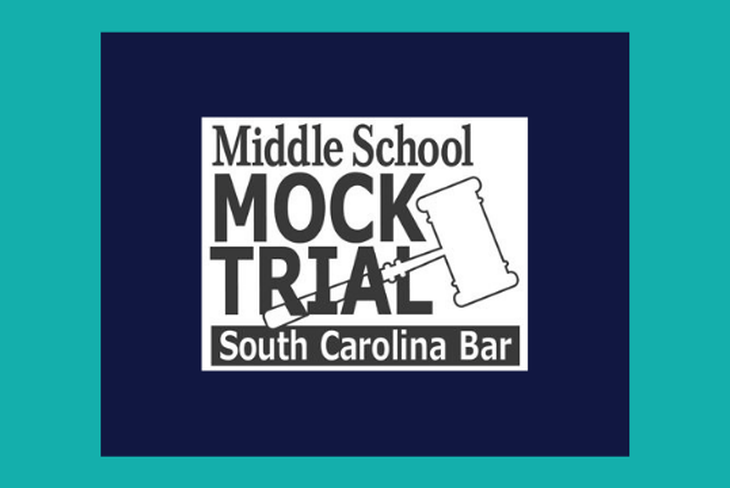Posted in: Public

Sixteen middle schools from across the state will compete in the 21st annual SC Bar Regional Middle School Mock Trial Competition on Nov. 12 and 13. The events will be held virtually due to the ongoing pandemic.
Students will present the prosecution and defense sides of a fictitious criminal case before a panel of local volunteer lawyers and judges. Additionally, students will fill the roles of attorneys, witnesses, bailiffs, and timekeepers.
“Through this program, students not only learn about the court process, but critical thinking, problem analysis and teamwork,” said Cynthia H. Cothran, Law Related Education director of the South Carolina Bar. “The best thing to see is students growing up in the program. I have watched middle school students participate in High School Mock Trial, go to college, enroll in law school and then become South Carolina attorneys that volunteer in the very program that gave them their passion for law.”
This year’s fictitious case is State of SC vs. CJ Lannister, in which CJ Lannister pled not guilty to murder and guilty but mentally ill to arson. Each team will be judged on its presentation skills, rather than the legal merits of the case.
Participating middle schools in the competition include:
- Blythewood Middle School, Blythewood
- Bob Jones Academy, Greenville
- Buist Academy for Advanced Studies, Charleston
- CE Murray Middle, Greeleyville
- Chapin Middle, Chapin
- Dent Middle School, Columbia
- Jackson Stem Middle School, Jackson
- JET: Johnston Edgefield Trenton Middle School, Johnston
- Kingstree Middle School, Kingstree
- Longleaf Middle School, Columbia
- Muller Road Middle School, Blythewood
- Palmetto Academy of Learning & Success, Myrtle Beach
- Southeast Middle School, Columbia
- St. James – Santee Elementary and Middle, Charleston
- WA Perry Middle School, Columbia
- Whittemore Park Middle School, Conway
The Mock Trial Program is sponsored by the SC Bar’s Law Related Education (LRE) Division, which was developed in 1976 to improve the ability of teachers to instruct law related education. The program is supported by the Bar’s LRE Committee and made possible through a SC Bar Foundation Interest on Lawyer Trust Accounts grant and the SC Bar.
